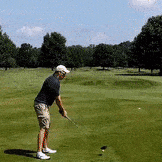IGNORED
Practice and getting out of your own way
Note: This thread is 3159 days old. We appreciate that you found this thread instead of starting a new one, but if you plan to post here please make sure it's still relevant. If not, please start a new topic. Thank you!
-
Topics Being Discussed Right Now on The Sand Trap
-
- 6,617 replies
- 255,032 views
-
"5 Minutes Daily" Practice Challenge 1 2 3 4 840
By iacas, in Instruction and Playing Tips
- 5 minutes daily
- dedication
- (and 6 more)
- 15,112 replies
- 911,243 views
-
- 30 replies
- 7,749 views
-
Snell Golf 2024 Prime Lineup Now Available
By billchao, in Balls, Carts/Bags, Apparel, Gear, Etc.
- snell
- snell golf
- (and 4 more)
- 4 replies
- 790 views
-
- 3,403 replies
- 333,564 views
-









Recommended Posts
Create an account or sign in to comment
You need to be a member in order to leave a comment
Create an account
Sign up for a new account in our community. It's easy!
Register a new accountSign in
Already have an account? Sign in here.
Sign In Now